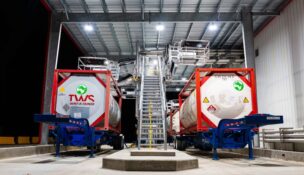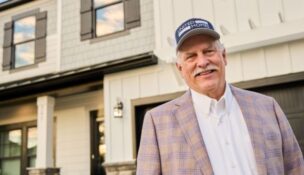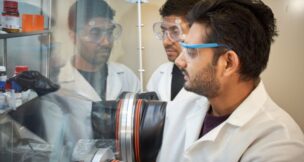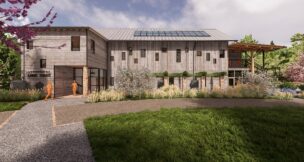Johns Island master-planned community begins construction
Staff Report //June 5, 2018//
A hunting lodge-turned-office space sits mostly alone on Mullet Hall Plantation, a span of land along the banks of the Kiawah River on Johns Island. The lodge is joined only by a shed, about 200 yards away, that serves as a meeting space.
Dirt roads and earthmoving equipment remind visitors as they stroll the property that the lodge’s days of solitude are numbered — in a few years, The Beach Co.’s master-planned Kiawah River community will be in full swing, with residents moving in to their new homes.
“One of the great advantages that we have being here as opposed to … Kiawah Island or Seabrook is really our proximity to downtown,” said Carter Redd, managing director of Kiawah River.
The Kiawah River community is about 2,000 acres of undeveloped land, and The Beach Co. plans to develop about 50% of that for 1,000 residential units, as well as some retail space, a restaurant and some visitor accommodations. Redd said the goal is to have other companies operate the retail and hotel spaces to capitalize on their expertise.
The other half of the property will be left as open space.
“This is a pretty fragile, amazing piece of property, and I think that our goal as developers is really not to change it, but really just to find little ways to make it easier to access it,” Redd said.
Redd said that although the development agreement between Kiawah River and Charleston County allows the company to create up to 36 holes of golf course, the company decided to forgo the golf after market research found that potential residents valued other things.
“They wanted to be a member of a community,” Redd said. “They wanted to be connected to a place that was greater than themselves, a place to be able to share and create memories with their families.”
The community won’t have any gates at its Betsy Kerrison Parkway entrance because Redd said the company wanted the property to feel inclusive.
Instead, visitors will be greeted by a retail space called Farmstead, which will include a restaurant, a shop and a farmer’s market that the public will be able to frequent. Redd said he couldn’t announce the retail company that would be occupying the space.
There’s also going to be oak trees lining the road into the property to help it blend in with the rest of Johns Island, and about 100 acres of agricultural fields that will be actively farmed by the Freeman family, who have worked on the land for four generations.
“The land has got such character to it, and it really begins there,” he said. “We really want to honor that, the property’s connections to farming and agriculture.”
Construction has just begun — Redd said they’ve been working on building roads and installing water and electric infrastructure per the company’s agreement with the county — but by the end of the initial seven-year phase of construction, about 100 homes will be built on Jack Island, across from the former hunting lodge. The entire project will take between 15 and 20 years to complete.
Redd said the company has already begun reserving lots for homes, which range in price from $165,000 to $500,000 in the first phase.
“We really want to make sure that we do appeal to families, young families, as well as empty nesters like myself, millennials; that we appeal to boomers, which is obviously still the biggest market,” he said, adding, “There’s a real variety of product and price point here so that we’re not homogenous, that we can really appeal to every group so that it’s an interesting place.”
Charleston County is also requiring that Kiawah River build at least affordable workforce housing units on the property. According to the development agreement, Kiawah River isn’t required to start construction on the affordable housing until the 200th residential unit is built, so Redd said plans have just barely begun on the housing, planned for a section of the property between Farmstead and Abbapoola Creek.
“It’s actually become front-of-mind because we feel like there’s a real-time need for it, more now than I think we initially anticipated,” Redd said. “So that might be something we move up in our sequencing.”
The Beach Co. has owned the land for about 20 years, 10 of which Redd said were spent working with Charleston County and other entities to create the development agreement. When that was completed at the end of 2009, the country was coming out of the Great Recession, which “wasn’t a particularly good time to launch a 2,000-acre, master-planned community,” Redd said.
The company also had to acquire permits to allow it to build, including a permit from the S.C. Department of Health and Environmental Control for a wastewater treatment plant.
Concerns
Running through the 2,000 acres of land that constitute Kiawah River is Charleston County’s Urban Growth Boundary, a line created in 2008.
“This is one of those pieces of property that can either serve to secure the future of Johns Island or it can open it up to more development, and a lot of that pressure comes from how we treat sewage,” said Lisa Jones-Turansky, chief conservation officer for Coastal Conservation League.
The wastewater treatment plant planned for the Kiawah River community is mentioned in the 2009 development agreement, but permits were approved by DHEC after the agreement was signed.
“It’s a big deal, and it’s also a big deal because it’s right next to the water,” Jones-Turansky said. “It’s right next to Kiawah, it’s right there on the river, it’s got a lot of water on the property.”
She added that flooding also is a concern, not only for Kiawah River but all of Johns Island.
“I think especially in the last year or two with a lot of the floods and some of the damage that’s been done to old and new communities that we have a renewed interest in looking at properties like Kiawah River Plantation as properties that help absorb a lot of the impact of floods or storm surges or that sort of thing,” she said. “I don’t have all the answers, but I do think the city and the county should work together when these developments are being built to acknowledge the important role that the wetlands play and then to try to pre-empt some of the problems.”
Redd said as for the treatment plant, it would be more risky to have septic tanks in the ground, which is common when there are no sewer lines in the area, and the sewer system on Johns Island doesn’t reach the development.
“We don’t believe septic tanks are particularly good for the environment,” he said. “It gets into the groundwater. So we’re building our own private utility company and our own sewer plant so that we can be much, much more environmentally responsible.”
He added that the wastewater treatment plant is part of the development’s stormwater plan, which also includes provisions for flood mitigation such as rice trunks in retention ponds along the causeways. The plan is being deployed in incremental phases as construction ramps up.
“That’s really a matter of the roads, the swales, and how the swales connect to retention ponds throughout the property and how they distribute the water away from lots and away from roads,” Redd said.
Redd said he’s also been working with local partners, including Charleston County, the town of Seabrook Island and the town of Kiawah Island, especially when it comes to traffic.
“We just want to kind of help contribute and be a force of good and really try to help contribute to that,” Redd said of traffic mitigation. “You know, I don’t think necessarily any of us have the solutions.”
Redd said the company is trying to be “students of history” and conservation when it comes to transforming Mullet Hall Plantation into the Kiawah River community.
“This is not a typical investment where you’re looking to make a high RR (rate of return), which has a time, value and money element in the equation,” he said. “This is really more of a legacy project that’s more about doing it right.”
















